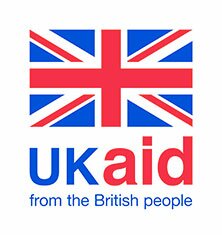Resource centre
The effect of COVID-19 and government response measures on poor and vulnerable groups in urban areas in Ethiopia – report four
This research report is the fourth in a series of six rounds of research, looking at the effects of COVID-19 on the poor and vulnerable urban households in Ethiopia. The report assesses the governments ongoing response to the pandemic as well as changes in household food security, livelihoods, education and access and use of health services and, explores how attitudes and behaviour towards the pandemic have changed. The results so far indicate that there have been varied impacts throughout the research sample, which to an extent are related to structural inequalities. The first three reports are available here.
Authored by Donna Harris, Biniyam Tadesse, Israel Mitiku, Mekdes Demissie, Alula Teklu, Girmay Medhin, and Frehiwot Belachew.
Opportunities of, and obstacles to, the utilisation of the Enhanced Single Registry
This policy brief presents recommendations based on the key findings from the research undertaken by Maintains; a qualitative exploration of the views on the ESR’s usability and, a data quality assessment of the data contained in the ESR. Both opportunities and barriers to the effective implementation of the Single Registry are provided, with recommendations focused on data and coordination.
Towards shock-responsive social protection: lessons from the COVID-19 response in Pakistan: Estimate from the microsimulation
This report presents the methodology and results of a microsimulation based on a partial equilibrium modelling framework using nationally representative household-level data for Pakistan. The findings include an estimate of the potential impact of COVID-19 on poverty in the country based on a model that assumes heterogeneity of impact across individuals and households depending on the type and sector of employment. Moreover, the model is used to assess the effectiveness, coverage, and adequacy of the social protection response to COVID-19. The microsimulation results complement a larger Pakistan country case study that documents the way in which social protection programmes, processes, and delivery systems have been used to respond to the COVID-19 crisis.
Brief: Towards shock-responsive social protection: lessons from the COVID-19 response in Pakistan
This policy brief draws on key learnings from the Pakistan research report on the social protection responses to COVID-19. The brief provides analysis of the factors that enabled and constrained the effectiveness of the delivery of social protection in Pakistan and also provides recommendations to improve preparedness to future shocks including the need to more clearly define provincial mandates on shock-responsive social protection






